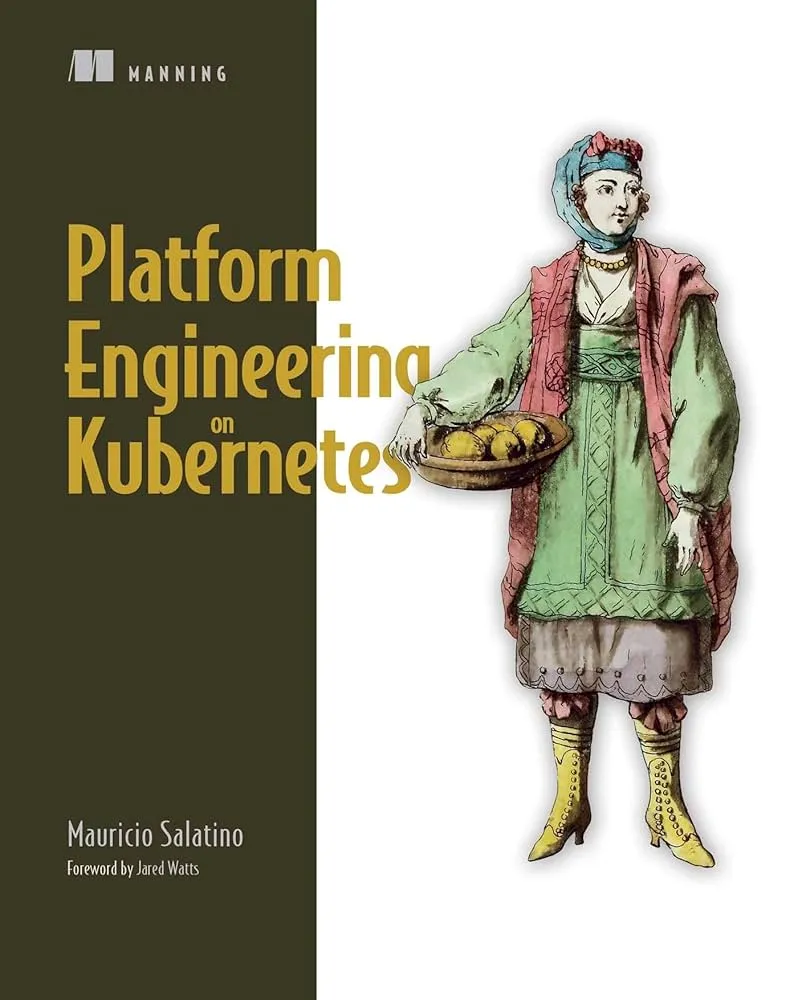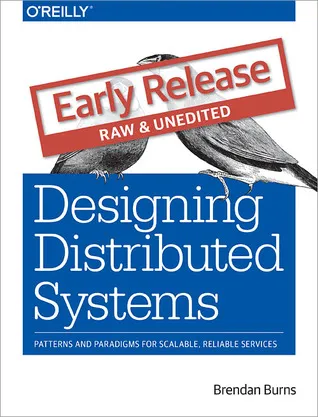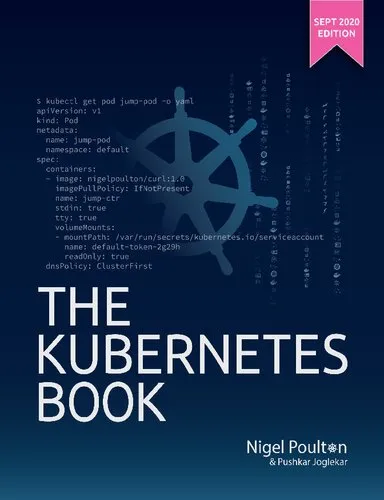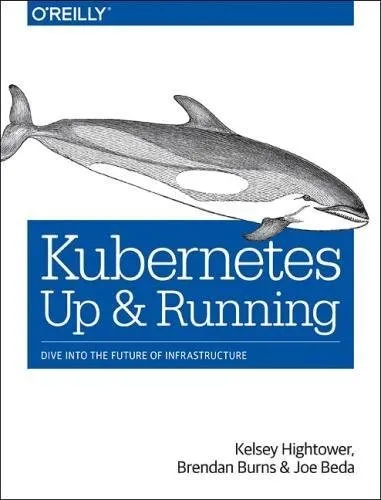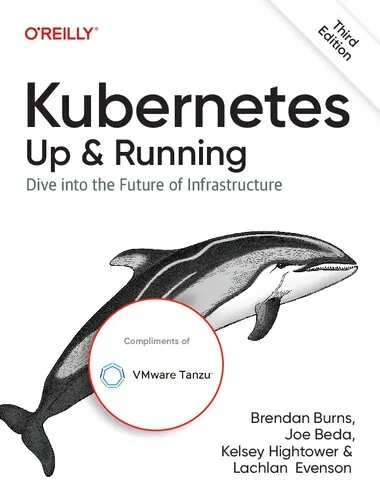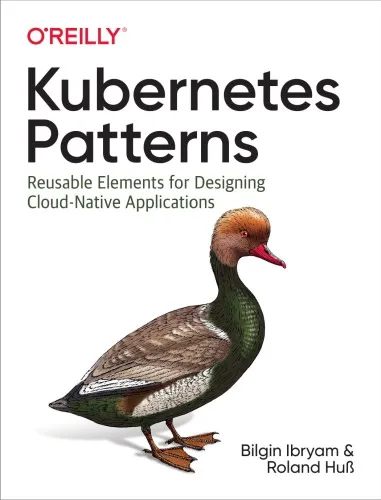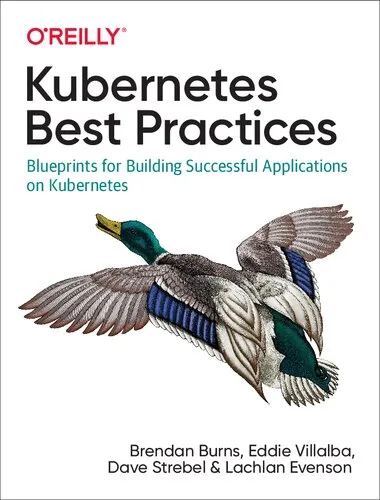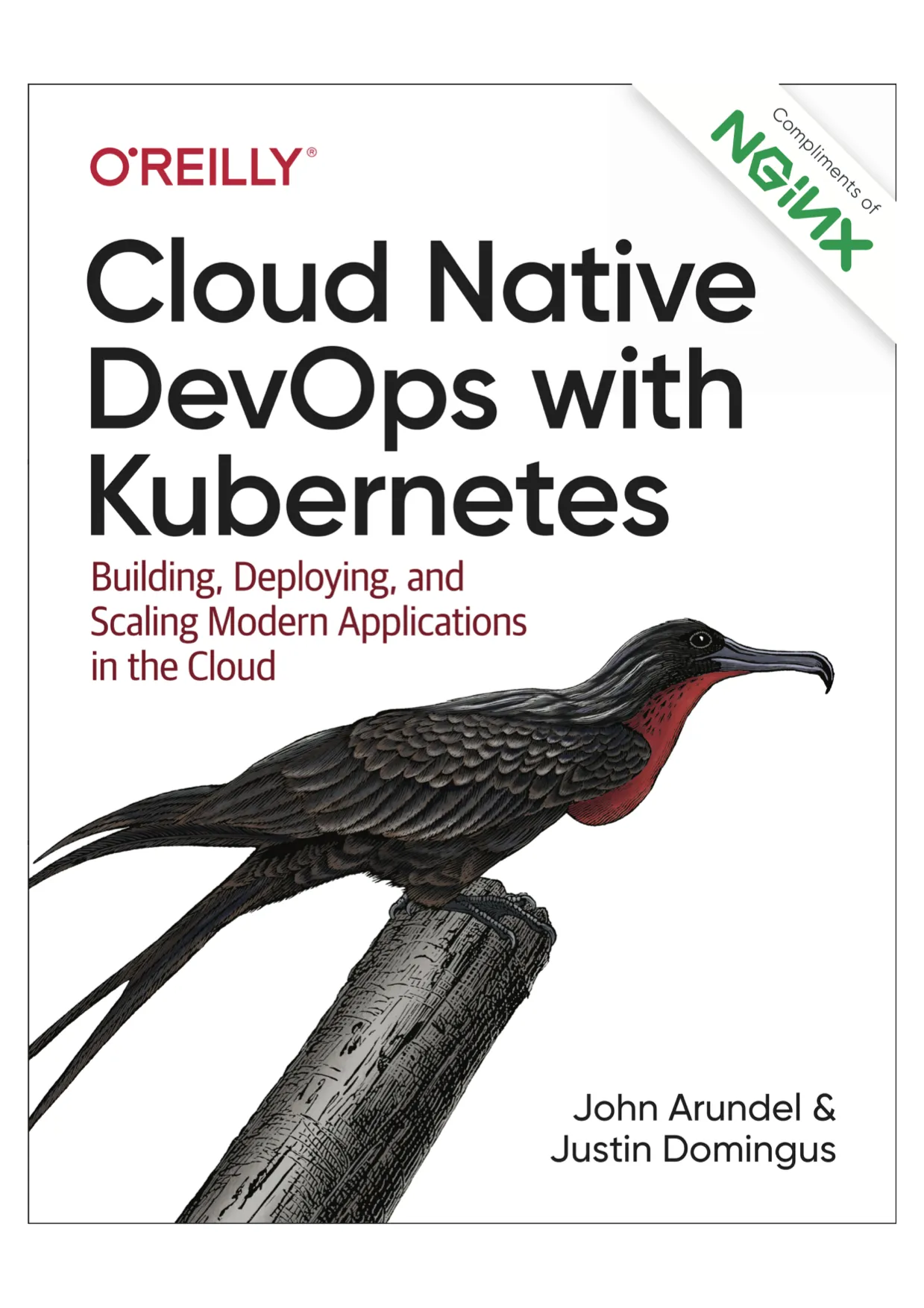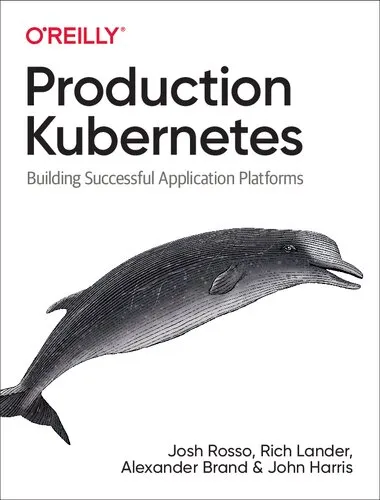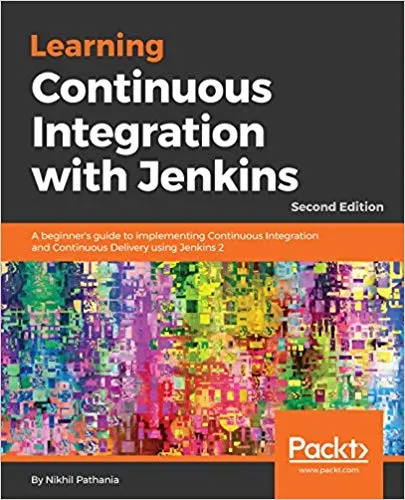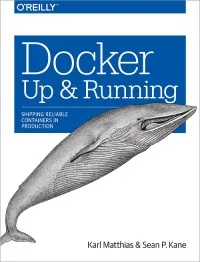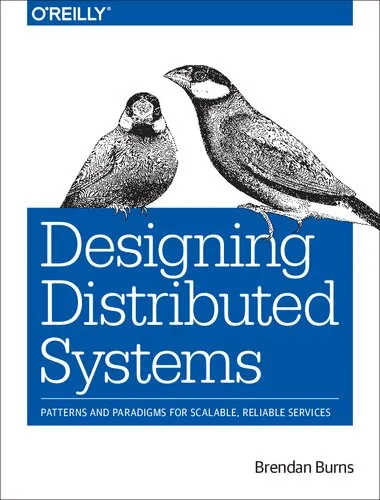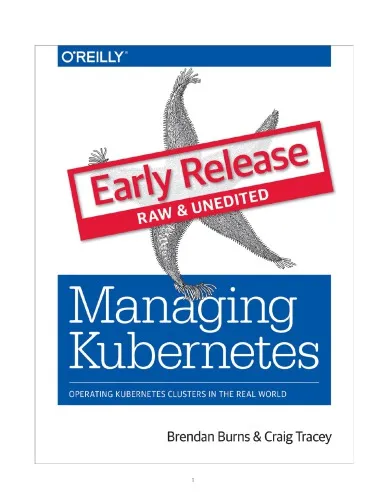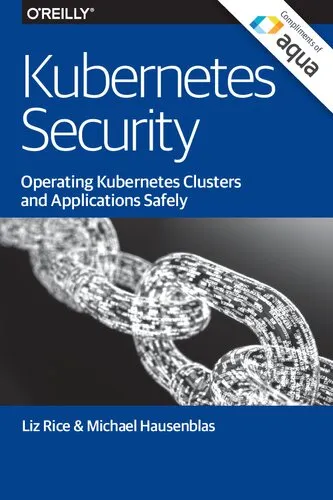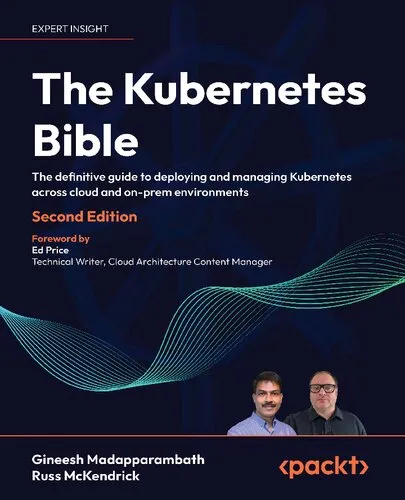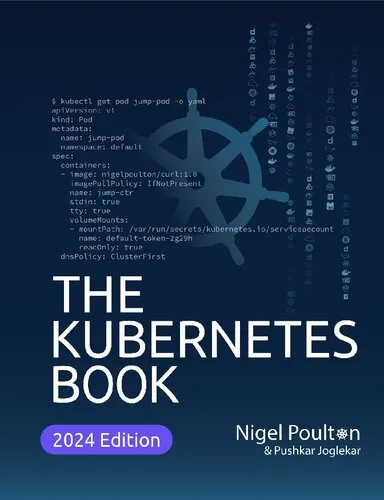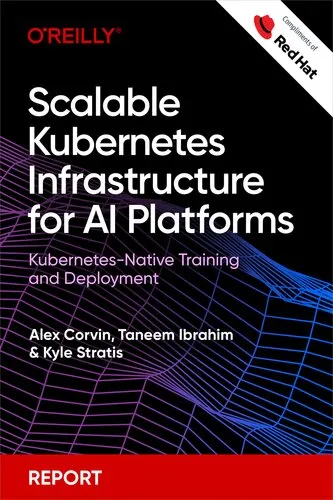Platform Engineering on Kubernetes
5.0
Reviews from our users

You Can Ask your questions from this book's AI after Login
Each download or ask from book AI costs 2 points. To earn more free points, please visit the Points Guide Page and complete some valuable actions.Related Refrences:
Persian Summary
Welcome to 'Platform Engineering on Kubernetes', a comprehensive guide authored by Mauricio Salatino. This book is designed for IT professionals, developers, and architects seeking to harness the full potential of Kubernetes for building scalable, efficient, and high-performing platforms.
Detailed Summary of the Book
'Platform Engineering on Kubernetes' delves into the intricacies of building adaptable platforms using Kubernetes, a powerful open-source orchestration tool. The book provides a step-by-step exploration of Kubernetes and its ecosystem, covering the architectural principles and practical implementations that allow for the creation of modern, cloud-native applications.
Starting with the basics, the book gradually introduces readers to more complex concepts and methodologies. It covers critical areas including containerization, orchestration, microservices, DevOps workflows, and CI/CD pipelines. Readers will also learn about integrating Kubernetes with other technologies to enhance platform capabilities and performance.
Each section of the book is crafted with examples and real-world use cases that illustrate the practical applications of Kubernetes, making it a valuable resource whether you are building something new from scratch or optimizing an existing system.
Key Takeaways
- Understand the fundamentals of Kubernetes and its role in platform engineering.
- Learn how to design and implement scalable and resilient architectures.
- Gain insights into integrating Kubernetes with modern development practices and tools.
- Explore advanced DevOps strategies to enhance your platform's reliability and efficiency.
- Discover practical examples that demonstrate the real-world application of Kubernetes technologies.
Famous Quotes from the Book
"The future belongs to those who can build nimble, scalable platforms using technologies like Kubernetes, transforming complexity into simplicity."
"As we venture deeper into the cloud-native era, understanding the dynamics of Kubernetes becomes more than an asset; it becomes a necessity."
Why This Book Matters
In an era where cloud-native infrastructure is reshaping the technology landscape, 'Platform Engineering on Kubernetes' serves as an essential resource. This book matters because it equips professionals with the knowledge and skills needed to build and maintain robust platforms that can adapt to rapid technological advancements.
By bridging the gap between theoretical concepts and practical implementations, the book empowers organizations to leverage Kubernetes effectively, enhancing their operational agility and competitiveness. Its detailed insights not only address the 'how' but also the 'why', providing readers with a holistic understanding of platform engineering.
Ultimately, the guidance and knowledge shared in this book prepare readers to thrive in a cloud-dominated future, making it an indispensable tool for anyone involved in technology and infrastructure management.
Free Direct Download
You Can Download this book after Login
Accessing books through legal platforms and public libraries not only supports the rights of authors and publishers but also contributes to the sustainability of reading culture. Before downloading, please take a moment to consider these options.
Find this book on other platforms:
WorldCat helps you find books in libraries worldwide.
See ratings, reviews, and discussions on Goodreads.
Find and buy rare or used books on AbeBooks.
2691
بازدید5.0
امتیاز2
نظر98%
رضایتReviews:
5.0
Based on 2 users review
ali594
May 27, 2025, 9:46 a.m.
ubernetes is a very capable platform with many ways to be used so writing a whole book on platform engineering for it is quite an endeavor. I found that the author did quite well in encapsulating a large amount of information in a relatively small book.
The author gets right to defining platform engineering around page 16 and gives a succinct definition: "Platform teams take the work done by developers safely to production."
The author then uses a simple but apropos "walking skeleton" example application of a conference organization application that is used throughout the book. This is the kind of application that you'd see being used for HashiConf.
There is a short overview of the pros/cons of various platform options that include local workstation, on premise (bare metal), or cloud managed Kubernetes clusters. Cloud managed clusters are generally recommended but KinD (Kubernetes in Docker) is used as the target testing platform for most examples. There are other options I might have included (k3s, minikube, or docker engine's built in kubernetes cluster) but I don't blame the author for keeping this part light in order to focus on the platform engineering content. By the end of chapter 2 you will have covered most of the basics of hand delivering an application into a Kubernetes cluster without platform engineering. This gives the reader most requisite knowledge for the remainder of the book's contents.
From here the author dives into;
- Service Pipelines
- Environment Pipelines
- Multi-Cloud
- Building a platform
- Challenge: Shared apps
- Challenge: Enabling experimentation
- Measuring Platforms
When I read a book like this I always ask myself a few questions;
**Question 1:** Did I learn about some new tool or gain a better appreciation about a tool I was already aware of?
**Answer:** Yes! "vcluster" and "Knative Serving" is now on my shortlist of tools to become more familiar with.
**Question 2:** Does the book offer unique insight into my industry that I might not have knowledge of otherwise?
**Answer:** Yes! The author is clearly experienced with delivering Kubernetes workloads and adds his unique perspective and experiences to the table repeatedly throughout the book.
Platform engineering has a bit of a niche audience that the author does a good job catering towards. I am comfortable recommending this book to a mid-level or higher developers or DevOps practitioners looking to better understand some options for streamlining applications into Kubernetes at their organization. The many practical examples provided add good context to the points being made. I believe that this book will help many readers get a better understanding of some of the tools available to them and be a good point of reference for their own efforts. Just beware that this book is not a compendium of all Kubernetes platform engineering knowledge. But it is a very well rounded and good book for most technical professionals' libraries.
ranveer
July 2, 2025, 11:35 a.m.
This is a good a book read, with examples.
Questions & Answers
Ask questions about this book or help others by answering
No questions yet. Be the first to ask!
